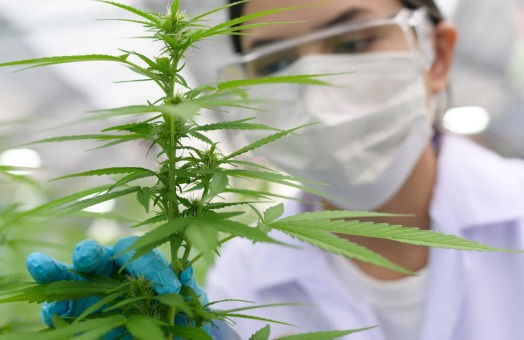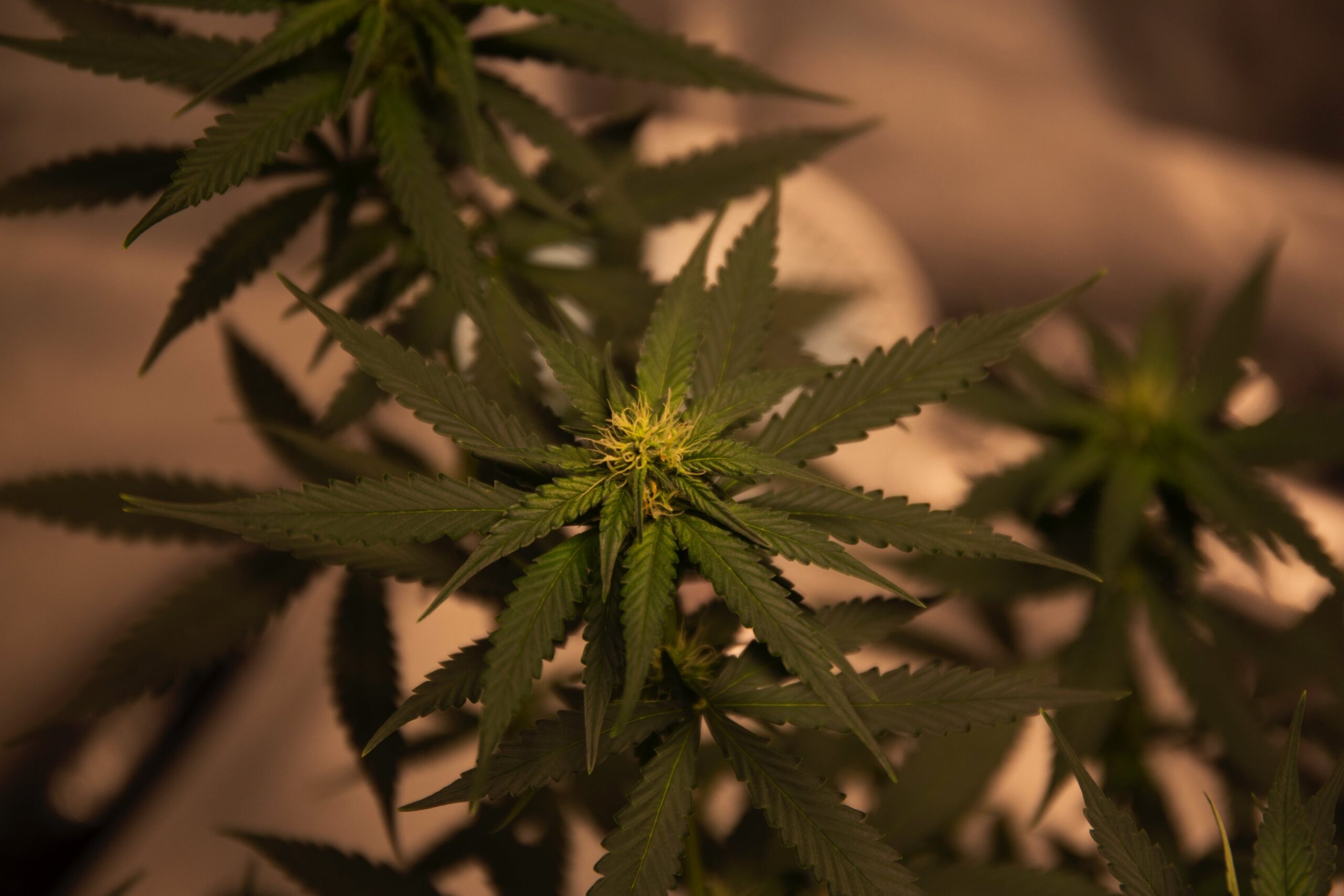With its growing legalization and destigmatization, marijuana use is continuing to grow all over the country.
Despite being regarded as a safe drug, the short- and long-term effects can have a serious impact on your health and well-being – especially for adolescents.
Key Points
- Marijuana (cannabis) is a psychoactive substance that is associated with troubling health consequences related to long-term use.
- Long-term effects include addiction and withdrawal, respiratory difficulties, stunted brain development, poor physical performance, pregnancy-related risks, testicular cancer, and other indirect effects.
- Marijuana withdrawal symptoms include mood changes, sleep problems, irritability, cravings for marijuana, and restlessness.
- Treatment for marijuana addiction includes medical detox, inpatient rehab, therapy, support groups, and 12-step programs.
Short-Term Effects of Marijuana
Tetrahydrocannabinol, also known as delta-9 THC, is the psychoactive substance in cannabis sativa. When inhaled, THC moves from the lungs directly into the bloodstream and to the brain, acting quickly. Ingested through edibles or other forms, cannabis takes about 30 minutes or an hour to take effect.
People feel relaxed and euphoric with marijuana, but its effects can vary widely.[1] Some people experience anxiety, panic, suspicion, and general fear. This is more common with doses that are more potent than expected or with new or infrequent users.
Marijuana may also cause:
- Mood changes
- Altered sensory perception
- Impaired body movement
- Impaired memory and cognitive function
- Changes in perception of time
- Increased heart rate
- Bloodshot eyes
Higher doses of marijuana may cause psychosis and symptoms like delusions or hallucinations, but this is more common after chronic marijuana use or highly potent marijuana doses.
Long-Term Effects of Marijuana
Though most people think of the immediate – or acute – effects of marijuana use, there are possible long-term adverse effects to be aware of, especially in adolescents with developing brains.
The long-term effects of marijuana use include the following:[2]

Addiction

Marijuana can be addictive, especially when it’s used during adolescence. There’s also an increased risk of concurrent substance abuse or addiction to other substances, including nicotine, alcohol, or “harder” drugs like heroin. A concerning issue related to marijuana is the possibility of contaminated products, including laced weed.

Respiratory Difficulties

When smoked, marijuana can irritate the respiratory tract, including the lungs and throat. Frequent use or long-term use increases the risk of complications like cough, chronic bronchitis, pneumonia, and lung illnesses.

Brain Development Problems

Some research suggests that regular marijuana use during adolescence, which is when the brain is still developing, can lead to impaired impulse control, learning, and memory. The most significant differences occur when marijuana is used heavily before the age of 18.
There is still a risk of cognitive impairment and memory problems in people who use marijuana heavily after 18, however.

Psychiatric Disorders

Some studies indicate a possible link between marijuana use and mental disorders like depression and anxiety, as well as psychotic disorders like schizophrenia, in people who have a genetic predisposition. In those who already have schizophrenia, marijuana use may worsen the symptoms.

Poor Athletic Performance

Research suggests that the use of cannabis harms athletic performance by impairing timing, movement, and hand-eye coordination. This is an important consideration for adolescents or young adults relying on participating in school sports for scholarships or other opportunities.

Pregnancy-Related Risks

Using marijuana while pregnant increases the risks of issues for the developing fetus, including issues with problem-solving, attention, and memory. Moderate amounts of THC can pass from breast milk to the nursing baby as well, possibly impacting brain development.

Testicular Cancer

A few studies show a possible link between adolescent marijuana use and aggressive testicular cancers.

Indirect Effects

Marijuana can impair judgment and reduce reaction time, which can be dangerous behind the wheel of a vehicle, working with hazardous machinery, or in other potentially dangerous situations that can lead to an accident, injury, or death.

Other Possible Risks

Marijuana has been used for thousands of years, but the research hasn’t caught up to the current use or range of different options on the market, including high-potency marijuana. Simply put, we’re not sure what unknown risks marijuana may have on the body and brain.[3]
Marijuana Withdrawal
Regular use of marijuana can lead to physical dependence, which is when the body adapts to the presence of marijuana. When this happens, stopping marijuana use leads to withdrawal symptoms like[5]:
- Mood changes
- Sleep problems
- Irritability
- Cravings for marijuana
- Restlessness
Treatment for Marijuana Addiction
Whether you’re already experiencing the negative effects of marijuana use or you want to stop before that happens, you can get help for yourself or a loved one for marijuana use disorder.
Marijuana withdrawal doesn’t come with the same risks as alcohol or opioids, but it can still be unpleasant and a hindrance to sobriety. In addition, many people who use marijuana also use other substances or suffer from co-occurring disorders that require treatment.
There’s no one-size-fits-all solution for marijuana addiction treatment, but it may include:

Cognitive Behavioral Therapy (CBT)

CBT is a therapeutic intervention that’s used to treat marijuana use disorder, depression, anxiety, and other mental health conditions. It’s one of the most effective means of treatment because it focuses on identifying unhelpful patterns of thoughts and behaviors and replacing them with desirable patterns.

Motivational Interviewing

Motivational interviewing (MI Therapy), also known as motivational enhancement therapy (MET), is a counseling technique that resolves uncertainties about making changes in life and developing sound solutions to address them. This process gives the person more agency in devising their solutions to personal challenges.
Frequently Asked Questions
Can You Overdose on Marijuana?
There are no reported cases of anyone dying from using marijuana on its own, but high doses can lead to extreme side effects like anxiety and paranoia. Though rare, psychosis or psychotic symptoms like hallucinations or delusions can occur.
Is It Bad to Smoke Weed Every Day?
Smoking marijuana, especially every day, may increase the risk of respiratory tract irritation, particularly to the lungs and throat. The other long-term risks of marijuana may increase with heavy use as well.
Can You Smoke Too Much Weed?
While marijuana use has become more commonplace and socially acceptable, there is such a thing as marijuana abuse or misuse. Aside from causing physical effects like lung irritation and an increased heart rate, smoking too much weed could increase the risk of mental health problems, dependency, and withdrawal symptoms.
What Happens When You Smoke Too Much Weed?
Consuming too much weed, either over time or at once, can cause or exacerbate effects like nausea, anxiety, or paranoia. With potent doses, smoking too much at once can increase the risk of marijuana psychosis.[6]
Volkow, N. D., Baler, R. D., Compton, W. M., & Weiss, S. R. (2014). Adverse health effects of marijuana use. New England Journal of Medicine/the New England Journal of Medicine, 370(23), 2219–2227. Retrieved from https://www.ncbi.nlm.nih.gov/pmc/articles/PMC4827335/ on 2024, June 6.
Know the risks of marijuana. SAMHSA. (n.d.). Retrieved from https://www.samhsa.gov/marijuana on 2023, June 19.
U.S. Department of Health and Human Services. (2023, January 11). Cannabis (marijuana) Drugfacts. National Institutes of Health. Retrieved from https://nida.nih.gov/publications/drugfacts/cannabis-marijuana on 2023, June 19.
Cannabis use disorder – statpearls – NCBI bookshelf. (n.d.-a). Retrieved from https://www.ncbi.nlm.nih.gov/books/NBK538131/ on 2023, June 19.
Clinical management of cannabis withdrawal – wiley online library. (n.d.-b). Retrieved from https://onlinelibrary.wiley.com/doi/10.1111/add.15743 on 2023, June 19.
Hall, W., & Degenhardt, L. (2008). Cannabis use and the risk of developing a psychotic disorder. World Psychiatry/World Psychiatry, 7(2), 68–71. Retrieved from https://www.ncbi.nlm.nih.gov/pmc/articles/PMC2424288/ on 2024, June 6.

